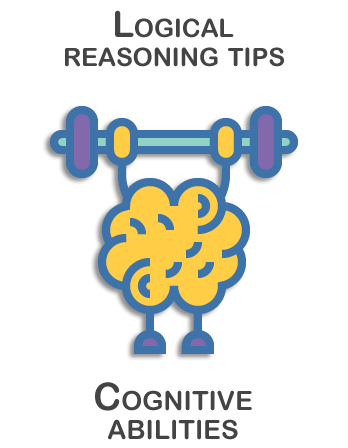Logic tips

Logic themes found on tests of academic achievement include deductive, inductive, and analytical reasoning:
- Syllogism (deductive reasoning)
- Shape sequences (inductive reasoning)
- Ordering (analytical reasoning)
- Grouping (analytical reasoning)